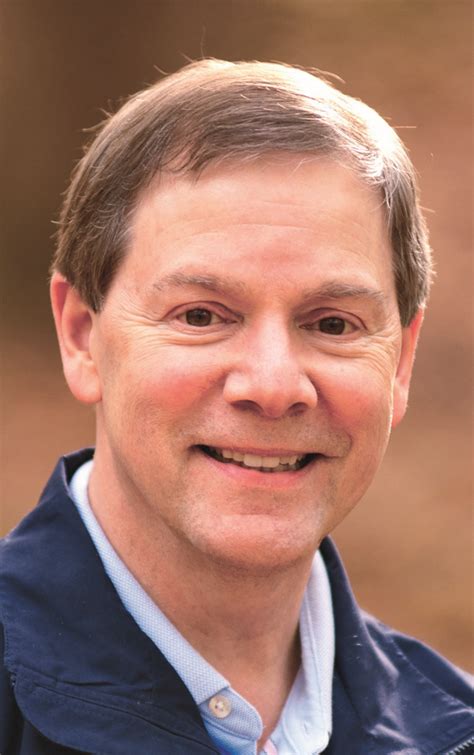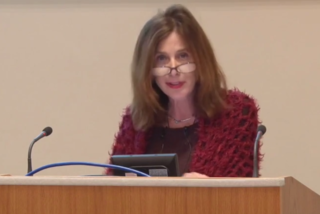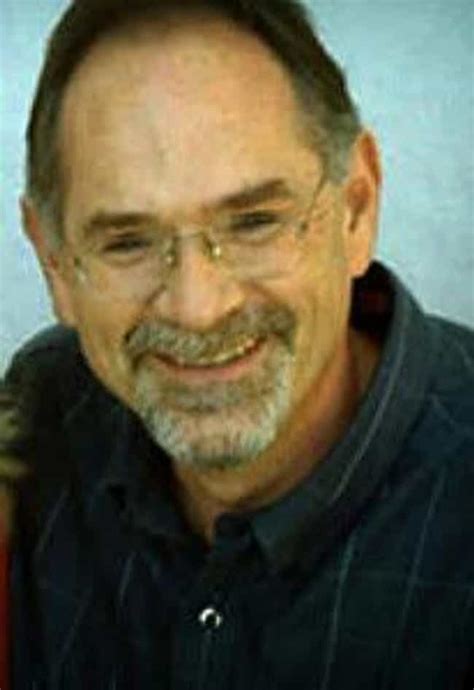Top 336 Disciplines Quotes & Sayings - Page 6
Explore popular Disciplines quotes.
Last updated on April 15, 2025.
The natural sciences are sometimes said to have no concern with values, nor to seek morality and goodness, and therefore belong to an inferior order of things. Counter-claims are made that they are the only living and dynamic studies... Both contentions are wrong. Language, Literature and Philosophy express, reflect and contemplate the world. But it is a world in which men will never be content to stay at rest, and so these disciplines cannot be cut off from the great searching into the nature of things without being deprived of life-blood.
It is my assumption that growth in faith is the root of all spiritual growth and is prior to all disciplines of works. True spirituality is not a superhuman religiosity; it is simply true humanity released from bondage to sin and renewed by the Holy Spirit. This is given to us as we grasp by faith the full content of Christ's redemptive work: freedom from the guilt and power of sin, and newness of life through the indwelling and outpouring of his Spirit.
Morality is neither rational nor absolute nor natural. World has known many moral systems, each of which advances claims universality; all moral systems are therefore particular, serving a specific purpose for their propagators or creators, and enforcing a certain regime that disciplines human beings for social life by narrowing our perspectives and limiting our horizons.
In every bio-region, one of the most urgent tasks is to rebuild the community of naturalists - so radically depleted in recent years, as young people have spent less time in nature, and higher education has placed less value on such disciplines as zoology……The times are right for the return of the amateur, twenty-first-century, citizen naturalist. To be a citizen naturalist is to take personal action, to both protect and participate in nature.
When we think of training ourselves in godliness, we usually think of the traditional spiritual disciplines, but it can also be practical activities like taking a nature walk or listening to music - whatever helps us draw closer to God. God hardwired our brains and bodies in such a way that spiritual training, combined with God's work in us, has the very real effect of making us more attuned to spiritual reality and our true identity in Christ.
Indian forms of yoga have spread throughout the world due to their objectives of promoting health and harmony. Japan is but one of many countries that have received these age-old teachings. While Indian yogic disciplines (Hatha yoga in particular) have become well known, not everyone realizes that certain distinctive Japanese versions of Indian spiritual paths have evolved. Perhaps the first of these unique methodologies is the art of Shin-shin-toitsu-do, which was developed by Nakamura Tempu Sensei (1876-1968). In fact, Nakamura Sensei is often considered to be the father of yoga in Japan.
Ask anyone who makes a full-length movie that's shown in the art world if they'd rather have a career as a film director or as an artist. Invariably, they'd rather be known as a film director, because that's what they are. But there's not really a system of independent distribution anymore that allows for that, and so the art world has kind of become all-enveloping. It's absorbed all of these disciplines that don't have a home anymore.
The tragedy of young-earth creationism is that it takes a relatively recent and extreme view of Genesis, applies to it an unjustified scientific gloss, and then asks sincere and well-meaning seekers to swallow this whole, despite the massive discordance with decades of scientific evidence from multiple disciplines. Is it any wonder that many sadly turn away from faith concluding that they cannot believe in a God who asks for an abandonment of logic and reason?
When I left university I was sure that I was going to be a painter. Then I had a crisis, a revelation. I saw Dolce Vita and my mind was blown by it, by the synthesis. I realised I wanted to be a filmmaker and started making films. I was writing screenplays and couldn't get money because my work was so uncommercial. I got married and started writing fiction. What was wonderful is that it gave me my freedom because no-one can tell me I can't work. Novels have become equally important to me as films. I consider myself a storyteller and passionately engaged in both of those disciplines.
Training moments occur when both parents and children do their jobs. The parent's job is to make the rule. The child's job is to break the rule. The parent then corrects and disciplines. The child breaks the rule again, and the parent manages the consequences and empathy that then turn the rule into reality and internal structure for the child.
Religions have found that if you behave in a certain way, if you sort of perform certain rituals that expand your mind and make you realize that will make you realize and help you to seguey into transcendence and perform certain acts, adopt a certain lifestyle, you develop new capacities of mind and heart, just like the dancer, or the athlete that make you into a whole human being and principle after one of these disciplines right across the board in all of the faiths is compassion, the ability to feel with the other person.
When a distinguished but elderly scientist states that something is possible, he is almost certainly right. When he states that something is impossible, he is very probably wrong. Perhaps the adjective 'elderly' requires definition. In physics, mathematics, and astronautics it means over thirty; in the other disciplines, senile decay is sometimes postponed to the forties. There are, of course, glorious exceptions; but as every researcher just out of college knows, scientists of over fifty are good for nothing but board meetings, and should at all costs be kept out of the laboratory!
If the nature of the work is properly appreciated and applied, it will stand in the same relation to the higher faculties as food is to the physical body. It nourishes and enlivens the higher man and urges him to produce the best he is capable of. It directs his freewill along the proper course and disciplines the animal in him into progressive channels. It furnishes an excellent background for man to display his scale of values and develop his personality.
Sometimes I train in the middle of the night, all on my own. Can't sleep, don't want to sleep, get up, go to the gym, work. This is early for me, being here at half ten in the morning, this is really early, and I'm only here because I screwed up yesterday and kept you hanging around. Other times I'll call up my wrestling coach, or my jiu jitsu coach, or my deep-tissue guy, and want to really focus on one part of what I do. I train in all these different disciplines.
When authoritative reports of radical-design craft having spectacular performance are viewed in the light of a stream of astrobiological discoveries, the possibility that some UFOs are alien does not seem quite so farfetched. Serious-minded scientists in astronomy and other disciplines estimate there could be billions of planets in the universe, and millions that could harbor life. If even a few of those planets were occupied by technological civilizations, their ability (if not desire) to explore other worlds, such as ours, must be a possibility.
Rather than asking architecture to be more interdisciplinary - a perennial issue within the discipline - I am suggesting that other disciplines might exploit the powers of architecture and urbanism. When addressing urgent situations, whether it's the depletion of the rainforest or abuse of labor, well-meaning people are working with tools, like standards, that seem like very blunt instruments. I am suggesting that spatial variables that are underexploited in governance might add to that repertoire.
Like art, like music, like so many other disciplines, prayer can only be appreciated when you actually spend time in it. Spending time with the Master will elevate your thinking. The more you pray, the more will be revealed. You will appreciate not only the greatness of prayer, but the greatness of God.
Over the past decade I have watched many friends go through graduate school and write dissertations. Through that process, I have seen how they are guided by mentors to understand particular norms within their disciplines and to learn about what they can and cannot, should and should not say, and which ideas can go together and which cannot. I never went through this process.
The great shift... is the movement away from the value-laden languages of... the "humanities," and toward the ostensibly value-neutral languages of the "sciences." This attempt to escape from, or to deny, valuation is... especially important in psychology... and the so-called social sciences. Indeed, one could go so far as to say that the specialized languages of these disciplines serve virtually no other purpose than to conceal valuation behind an ostensibly scientific and therefore nonvaluational semantic screen.
I never asked you to earn me. I want only that you should need me. Your path is not one of merit. Bring the recurring desires of your mind to me, every time they emerge. They cannot shock me, for I willed them! Bring me your confusion, your fear, your craving, your anxiety, your inability to love the world, your hesitation to serve, your jealousy, all the deficiencies that defy your spiritual disciplines.
Nothing disciplines the inordinate desires of the flesh like service, and nothing transforms the desires of the flesh like serving in hiddenness. The flesh whines against service but screams against hidden service. It strains and pulls for honour and recognition. It will devise subtle, religiously acceptable means to call attention to the service rendered. If we stoutly refuse to give in to this lust of the flesh, we crucify it. Every time we crucify the flesh, we crucify our pride and arrogance.
A leader is only able to lead others because he disciplines himself. The person who does not know how to bow to discipline imposed from without, who does not know how to obey, will not make a good leader-nor will the one who has not learned to impose discipline within his own life. Those who scorn scripturally or legally constituted authority, or rebel against it, rarely qualify for high leadership positions.
What sets Christian spiritual activity apart from all other religions is that they have knowledge of Christ as their goal; not moral perfection (although you will become more moral), not tranquility (although your life will be remarkably more peaceful). And because of the grace you have in Christ, the disciplines will do nothing to make you more accepted by the Father. You cannot be more accepted than you already are in Christ, since He has already done it all for you!
I am very fascinated by the idea of hyperbole in subject matter as well as production. I like the idea of going overboard in producing an art piece and I like the way it brings the work away from a meditative space of reflection to a more direct, impactful tool that can compete with the mainstream. I like all these power plays, which have a lot to do with contextualization. In turn, I'm interested in creating crossovers between creative disciplines and in a way in subverting the expected role of the artist in society.
Work is a means; it is not an end. And for any tasks that can be performed or eliminated by a capital instrument, human labor is not the best means... Furthermore, we have science, engineering and management - the three disciplines - that really plan and control the production of goods and services, trying to eliminate labor. Who the hell is government to come along and try to create labor? The people who are producing wealth are trying to eliminate toil, while the politicians are trying to create it.
Success is created through the performance of a few small daily disciplines that stack up over time to produce achievements far beyond anything you could of ever planned for. Failure, on the other hand, is just as easy to slip into. Failure's is nothing more than the inevitable outcome of a few small acts of daily neglect performed consistently over time so that they take you past the point of no return.
Western liberal humanism is not something that comes naturally to us: like an appreciation of art or poetry, it has to be cultivated. Humanism is itself a religion without God-not all religions, of course, are theistic. Our ethical secular ideal has it's own disciplines of mind and heart and gives people the means of finding faith in the ultimate meaning of human life that were once provided by the more conventional religions.
The disciplines of prayer, silence, and contemplation as practiced by the monastics and mystics are precisely that - stopping the noise, slowing down, and becoming still so that God can break through all our activity and noise to speak to us. Prayer serves to put all parts of our lives in God's presence, reminding us how holy our humanity really is.
I went away to this summer program after my junior year of high school. They used to have this thing called the Governor's School, and they had it for different disciplines - science, math, performing arts. I auditioned and I got accepted, and it was an eight-week program away from home. I went for acting. I was 15, and I turned 16 while I was there, so that was a seminal moment for me. It made me realize the life of it, the discipline of it, and the joy of that discipline, where it was all we did.
Any artist, in any field, wants to press deeper, to discover further. Image and sound play are among the strongest colors available to poetry's palette. For a long time, I've wanted to invite in more strangeness, more freedom of imagination. Yet music, seeing, and meaning are also cohering disciplines. They can be stretched, and that is part of poetry's helium pleasure. But not to the point of breaking.
There is so much closed-mindedness, there is so much closed-off thought, there is so much bigotry and prejudice within knowledge that it, I think, is stunting the actual intelligence growth of our population. Not our capabilities but our actual intelligence growth because all of the stigma that's attached to people that don't have formal educations as opposed to those who do. But the people that have formal educations have been programmed and indoctrinated in many cases, not in all the disciplines.
College football is no more of a minor league than, say, the universities' schools of journalism, engineering or music are. We can argue at another time whether football should occupy the same space on campus as those disciplines, but for now, it does. The critical point is that a coach is less concerned with preparing athletes for the next level than he is with molding them to fit a system that helps him win games, keep his job and, eventually, move on to a position with a more prestigious program.
General Systems Theory is a name which has come into use to describe a level of theoretical model-building which lies somewhere between the highly generalized constructions of pure mathematics and the specific theories of the specialized disciplines. Mathematics attempts to organize highly general relationships into a coherent system, a system however which does not have any necessary connections with the "real" world around us. It studies all thinkable relationships abstracted from any concrete situation or body of empirical knowledge.
The business schools could do a better job teaching face-to-face management, the actual work of organizing and helping along the efforts of others in the organization. The more quantitative disciplines have gotten more attention, often more research dollars. Areas like organizational science or, even mushier, leadership have had more trouble settling on what it's important to teach, and how. It's rather like strategy itself, which as I argue in the book, has had trouble through most of its history figuring out how to incorporate people, their motivation and ability, into its calculations.
Like a child exploring the attic of an old house on a rainy day, discovering a trunk full of treasure and then calling all his brothers and sisters to share the find, Richard J. 'Foster has 'found' the spiritual disciplines that the modern world has stored away and forgot, and has excitedly called us to celebrate them. For they are, as he shows us, the instruments of joy, the way into mature Christian spirituality and abundant life.
We kissed, then, and the ardour of her kiss stole my breath away. I returned her passion with all the fervor I possessed. A lifetime of vows and heart-felt disciplines had prepared me well, for in that kiss I sealed with all my soul the fate before me, embracing a mystery clothed in warm and yielding female flesh. Holding only the moment, with neither thought nor care for the future, I kissed her, and drank deep the strong wine of desire.


































